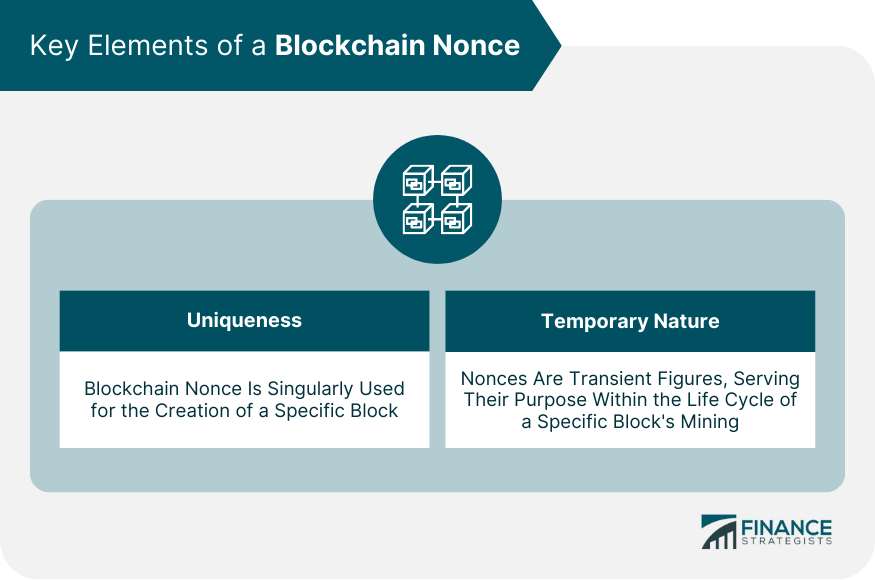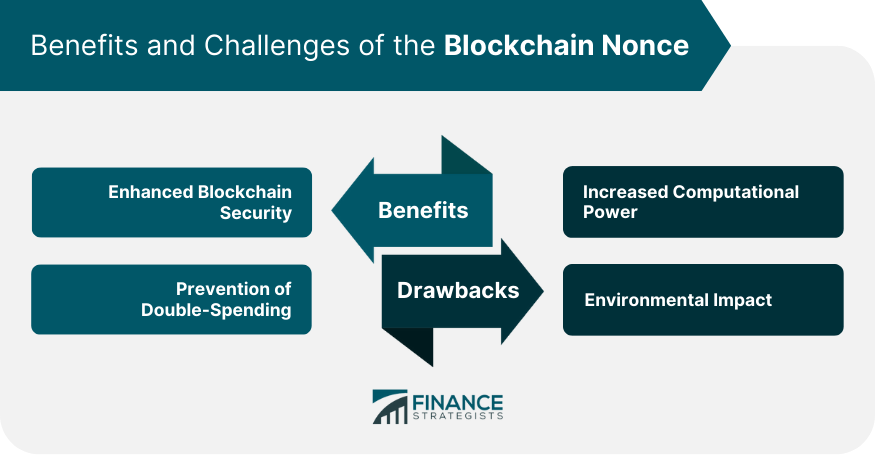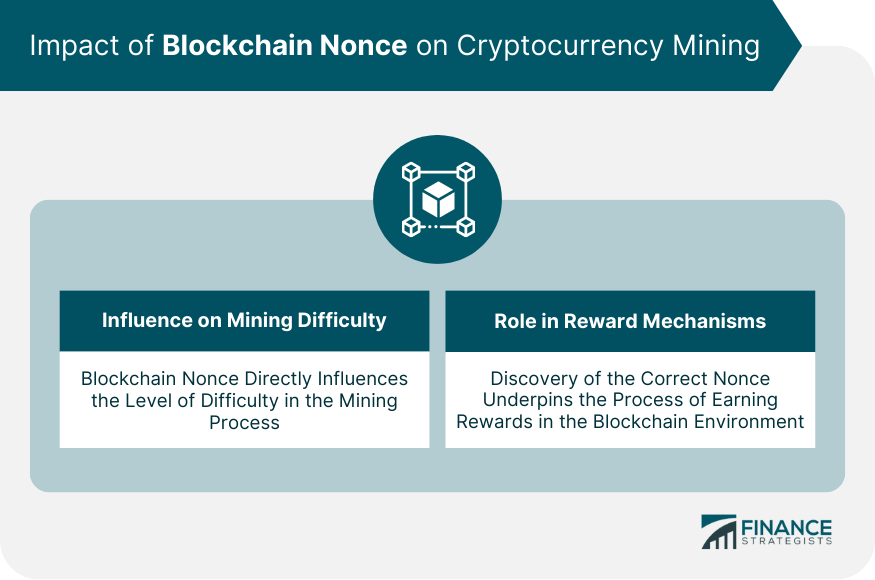Blockchain nonce represents a number used merely once, a mathematical variable miners rely on when verifying transactions and generating new blocks. In essence, it's a critical cog in the intricate machinery of blockchain processes. The blockchain nonce carries significant weight in upholding blockchain security and ensuring the system's robustness. It forms part of the complex cryptographic puzzle that miners strive to solve. As they search for the correct nonce, they expend computational resources, fortifying the system against potential attacks. The requirement to discover a suitable nonce essentially creates a scenario where launching attacks becomes economically prohibitive, thereby fortifying the blockchain network. Miners in the blockchain network, engage in a computational race to discover the correct nonce, which forms part of the proof-of-work protocol. This race is not merely a pursuit of chance but a core process in the creation of new, valid blocks. The nonce, combined with transactional data, gets churned through a rigorous cryptographic process to yield a distinct output. A cryptographic hash function, such as SHA-256, used in Bitcoin, acts on the input data, which comprises the nonce and transaction details. This function outputs a hash value—a unique string of characters. However, any given hash value isn't acceptable; the produced hash must be smaller than a target set by the network, making the nonce a pivotal variable in achieving a valid output. The proof-of-work (PoW) protocol forms the backbone of the nonce's functionality. It sets up the ground rules for adding new blocks to the blockchain. To generate a valid hash and, subsequently, a valid block, miners continuously adjust the nonce and hash the block data. The first miner to discover a nonce that results in a valid hash receives a cryptocurrency reward, stimulating continued participation in the network. The blockchain nonce holds a unique characteristic: it is singularly used for the creation of a specific block. Once a suitable nonce has been found, leading to a valid block addition to the blockchain, that nonce cannot be reused. This property helps preserve each block's distinctness and the transactions encapsulated within. Nonces are transient figures serving their purpose within the life cycle of a specific block's mining. Once the corresponding block gets validated and becomes part of the blockchain, the nonce used in its creation is deemed obsolete, further reinforcing its unique, one-time usage property. By making each block distinct, the blockchain nonce significantly enhances the security of the entire blockchain system. It ensures that blocks cannot be pre-mined and that each miner participating in the network has a fair chance of earning the mining reward. The nonce thereby democratizes the mining process and strengthens the network against malicious activities. The blockchain nonce's distinct property also provides a solution to the double-spending problem, a critical issue in digital currencies. By ensuring that each transaction is unique and cannot be replicated, the nonce helps maintain the trustworthiness of the digital currency system. The constant computational effort required to discover the nonce translates into substantial energy usage and demands high-performance hardware. This requirement could result in high operational costs, placing a strain on miners' financial resources and increasing the entry barrier for potential participants. The energy-intensive nature of mining, primarily due to the nonce discovery process, has environmental implications. The electricity consumed by blockchain networks can be staggering, especially as the complexity of mathematical puzzles increases with the network's growth. This power consumption aspect of blockchain technology has sparked widespread concern and criticism. The blockchain nonce directly influences the level of difficulty in the mining process. As the network grows, with more miners entering the scene or faster hardware being introduced, the network automatically adjusts the difficulty level of the puzzle. This adjustment ensures that the time taken to discover a new block remains constant, preventing the blockchain from bloating. The process of earning rewards in the blockchain environment hinges on the discovery of the correct nonce. This quest underpins the proof-of-work process, where miners are incentivized to participate actively in the network. The miner who uncovers a nonce that leads to a valid hash gets the privilege of adding a new block to the blockchain and receiving the associated reward. The nonce holds a pivotal role in safeguarding the integrity of the blockchain network. Its integral part in the mathematical challenge assures the chronological order of the blockchain. This guarantee ensures that past transactions cannot be altered, maintaining the blockchain's neutrality and trustworthiness. The inherent difficulty in discovering a suitable nonce for each block acts as a potent deterrent to fraudulent activities. It is near-impossible to tamper with past transactions without controlling more than half of the total computational power of the network—a condition rarely feasible. Thus, the nonce, in its small but potent way, enhances the inherent security features of blockchain technology. Bitcoin, the first and most prominent cryptocurrency, pioneered the use of the nonce in its proof-of-work algorithm. In Bitcoin's blockchain, miners worldwide compete to discover the nonce that results in a hash output that satisfies the network's current difficulty level. Like Bitcoin, Ethereum incorporates the nonce in its mining process. However, Ethereum's roadmap includes plans to transition to a proof-of-stake consensus mechanism. This transition would eliminate the need for nonces and the energy-intensive mining process, marking a significant evolution in the blockchain ecosystem. Litecoin, often termed the silver to Bitcoin's gold, adopts a different cryptographic algorithm, Scrypt. Despite this variation, the principle of the nonce remains integral to its blockchain mining process, underscoring the universal importance of the nonce across different cryptocurrencies. A blockchain nonce is a key element that bolsters the robustness and security of blockchain technology. It is a unique, one-time-use number utilized in the cryptographic processes of mining, making each transaction and block unique. The nonce's functionality aids in enhancing security, preventing double-spending, and maintaining the overall integrity of the network, thus ensuring its trustworthiness. However, it also brings forth challenges, including increased computational power requirements and environmental concerns due to the high energy consumption involved. These complexities underline the vital role the nonce plays in major cryptocurrencies like Bitcoin, Ethereum, and Litecoin. As you navigate the digital frontier, understanding such intricate aspects of blockchain technology becomes crucial. For those seeking to maximize their wealth through these evolving markets, professional guidance can be invaluable.What Is a Blockchain Nonce?
How a Blockchain Nonce Works
Role in the Mining Process
Connection With Cryptographic Hash Functions
Interplay With the Proof-of-Work (PoW) Protocol
Key Elements of a Blockchain Nonce
Uniqueness
Temporary Nature

Benefits of the Blockchain Nonce
Enhances Blockchain Security
Prevents Double-Spending
Challenges With the Blockchain Nonce
Increased Computational Power
Environmental Impact

Impact of Blockchain Nonce on Cryptocurrency Mining
Influence on Mining Difficulty
Role in Reward Mechanisms

Blockchain Nonce and Network Security
Role in Maintaining Network Integrity
Implication for Cryptocurrency Fraud Prevention
Blockchain Nonce in Context: Notable Cryptocurrencies
Bitcoin
Ethereum
Litecoin
Final Thoughts
Blockchain Nonce FAQs
A blockchain nonce is a unique number used in the mining process to enhance security and prevent double-spending.
The nonce maintains the integrity of the blockchain, preserving transaction order and deterring fraudulent activities.
A nonce enhances security, prevents double-spending, and ensures fairness in mining rewards within the blockchain system.
Nonce discovery requires increased computational power and has environmental implications due to high energy consumption.
The nonce influences mining difficulty and serves as a crucial factor in earning rewards and adding new blocks to the blockchain.
True Tamplin is a published author, public speaker, CEO of UpDigital, and founder of Finance Strategists.
True is a Certified Educator in Personal Finance (CEPF®), author of The Handy Financial Ratios Guide, a member of the Society for Advancing Business Editing and Writing, contributes to his financial education site, Finance Strategists, and has spoken to various financial communities such as the CFA Institute, as well as university students like his Alma mater, Biola University, where he received a bachelor of science in business and data analytics.
To learn more about True, visit his personal website or view his author profiles on Amazon, Nasdaq and Forbes.











